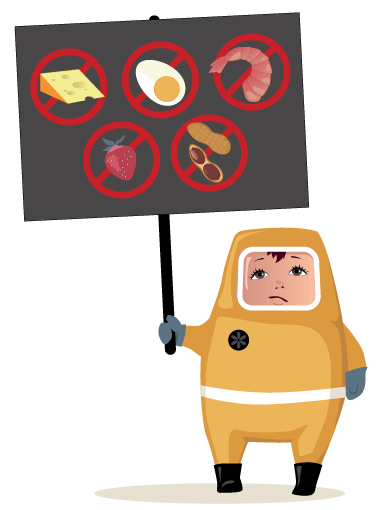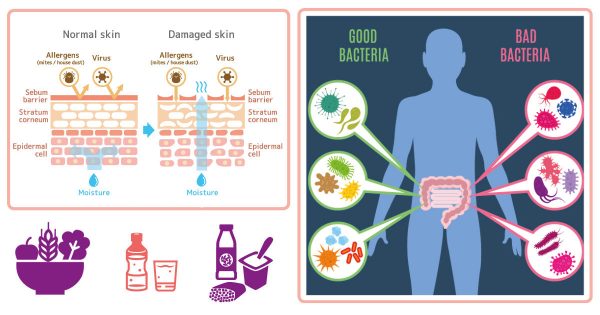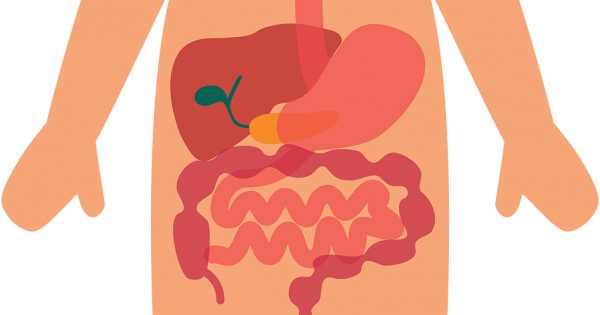There is more to the saying “You are what you eat” than you may give it credit for. For instance, many different foods can actually cause different reactions, particularly if a person is sensitive or allergic to certain types of food.
There is little surprise to learn that more and more Malaysians are learning about allergies the hard way. The growing number of allergies and people who suffer from them could be due to greater awareness, or simply part of the ‘allergy epidemic’ that seems to be affecting the world. Regardless of the cause, some 60% of all allergies tend to appear during the first year of life, with an estimated one in three children being affected by allergy.
Food allergy vs intolerance
Food allergy is an immune system response which responds to specific types of foods, such as shellfish (e.g. crabs, shrimp, lobsters, etc.), peanuts, egg whites, fish, or cow’s milk. The response can range from responses such as vomiting and/or stomach cramps, an outbreak of hives, a sudden shortness of breath, wheezing or repetitive coughing, difficulty swallowing, weak pulse, and/or feelings of dizziness or nausea. In extreme cases, anaphylactic shock can occur, which is a potentially life-threatening situation where the body goes into shock and multiple symptoms occurring simultaneously.
Food intolerance, on the other hand, is a digestive system response, which is what happens when your child’s body is having trouble digesting the food he has eaten. Now, it may be a little confusing at first as both do share some similarities – however, since food intolerance has everything to do with your child’s digestive system, the symptoms you observe should be tied to it too, e.g. nausea, stomach pain or discomfort, diarrhoea, vomiting, bloating or gas. He or she may also suffer from additional symptoms such as heartburn, headaches, or irritability or nervousness.

If you do suspect that your child has food allergies or food intolerance of some kind, do make it a point to consult your child’s paediatrician first. Chances are high that it is just a passing phase, and by avoiding the food that you assumed causes his allergy/intolerance would mean depriving him of any potential nutritional benefit these foods may offer him.
Keeping track
Since there is no test that exists which is able to conclusively determine what your child is intolerant to, the only reliable means is the good old, scientific method of observation and study – this can be achieved by keeping an accurate food diary. The main points you need to keep track of are:
- what you have given him or her,
- when and in what quantity was it given,
- symptoms, if any, that may have appeared.
Sample of food diary

Did you know?
The biggest problem with allergies is that it can present in many ways, e.g. atopic eczema or dermatitis, allergic rhinitis, and allergic asthma are all examples of allergies. In fact, almost any substance can become an allergen (the allergy-causing substance) – common allergens include dust, pollen, mould, pet fur/hair, and even certain foods.
This is the most reliable way to discover if any food in particular is causing your child to suffer. In fact, if you suspect that you are also suffering from food intolerance, this may be a great way for you to find out what exactly is causing you that upset stomach or bloated tummy!
This food diary should be continued until the culprit foods causing the symptoms have been identified. However, do note that a food diary is only as useful as its entries, so keep them for at least two weeks in order to identify any common patterns or symptoms.
Remember, you should not avoid any food or food groups for too long in order to ensure your child’s diet remains nutritionally sound. If any food or food groups need to be avoided, do discuss it with a dietitian or nutritionist in determining a strategy to deal with his food intolerance.
An educational contribution by Malaysian Paediatric Association.







Comments